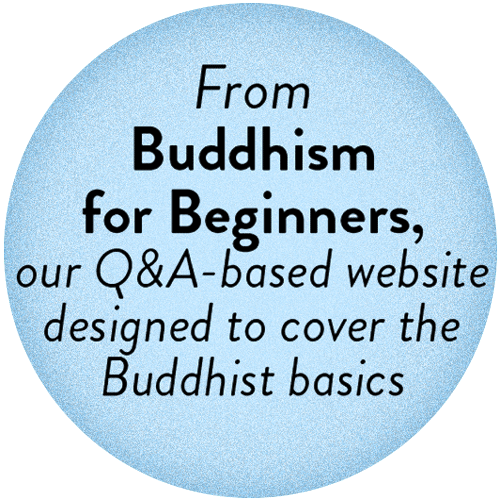The term “skillful means” (Skt. upaya, upaya-kaushalya) refers to an enlightened person’s ability to tailor their message to a specific audience. Though the concept emerged most clearly in texts such as the Lotus Sutra hundreds of years after Buddhism was founded, upaya characterizes the historical Buddha’s style of dialogue and teaching. Teachers today may employ skillful means to deliver the right teaching to a student in the most effective manner.
The Buddha went to great lengths to adapt his teachings to his students, using local languages and familiar imagery and metaphors. His dialogues are similar to those of Socrates, who accepted questioners’ opening propositions and conducted discussions on their terms.
The Buddha likened his teachings to a raft—once the river was crossed and the far shore of liberation reached, the raft should be abandoned. In other words, the words or forms used to reach the goal aren’t intrinsically valuable but are worthwhile to the extent that they help us attain awakening.
A famous parable from Buddhist literature, recounted in the Lotus Sutra, is that of the burning house: A fire breaks out in a many-roomed house, but while the father manages to escape, his three children are still inside, distracted by games and other pleasures. The father lures his children out of the house by promising each of them a gift suited to their respective tastes; when they finally escape the fire, all three children receive the same reward: liberation. In the same way, teachers will guide each student differently in accordance with their unique needs and disposition, but the goal is always the same: awakening, or liberation.
The concept of upaya is one reason why there can be so many different kinds of Buddhism. One Buddhist metaphor sums it up: In the vast ocean, the water, whether on the surface or in the deep, has only one taste: salt. Similarly, the teachings of various traditions may look and feel different, but they all have the same “taste”: liberation.
Skillful means is also used to explain some unconventional teachings that seem to contradict established doctrine. There are many stories, particularly in the Tibetan and Zen traditions, of masters hitting disciples or destroying Buddha statues as skillful means—the right teaching for that time, place, and student.
But all teachings must be grounded in wisdom and compassion, and all teachings must have liberation as their ultimate goal. In recent years, many practitioners have spoken out about instances of teacher-student abuse and the inherent power dynamic. Whether teachers who are considered to be enlightened are “using skillful means” or simply taking advantage of their power is a question that Buddhist communities continue to grapple with to this day.
Thank you for subscribing to Tricycle! As a nonprofit, we depend on readers like you to keep Buddhist teachings and practices widely available.

